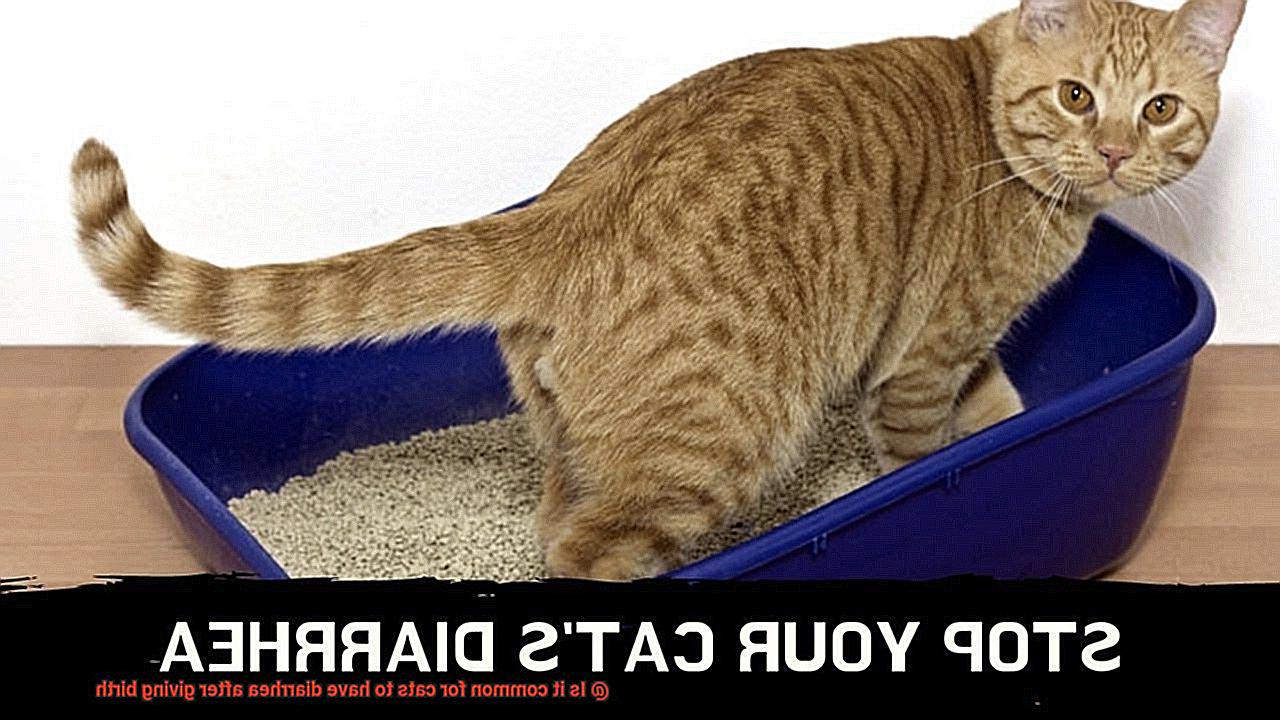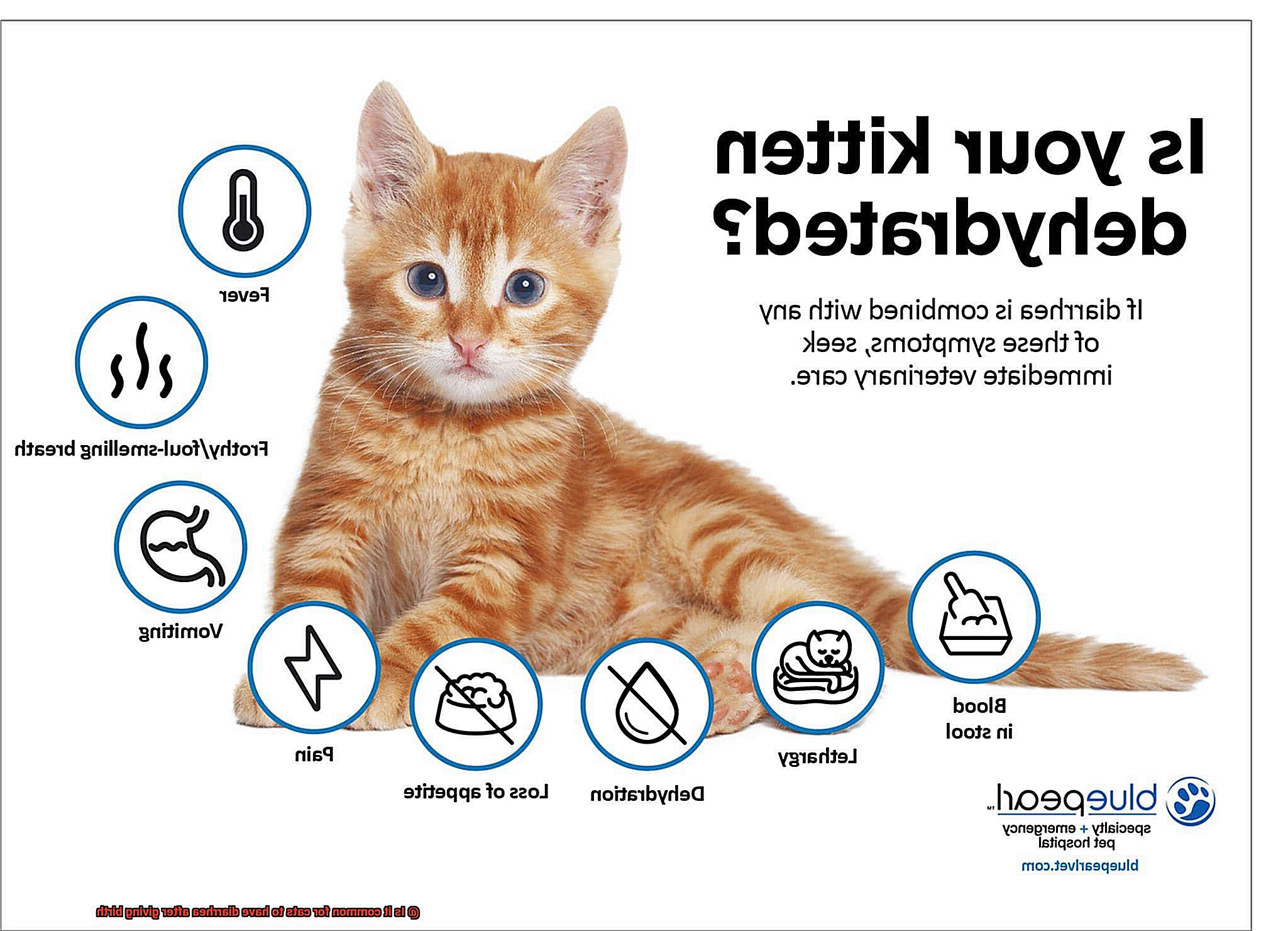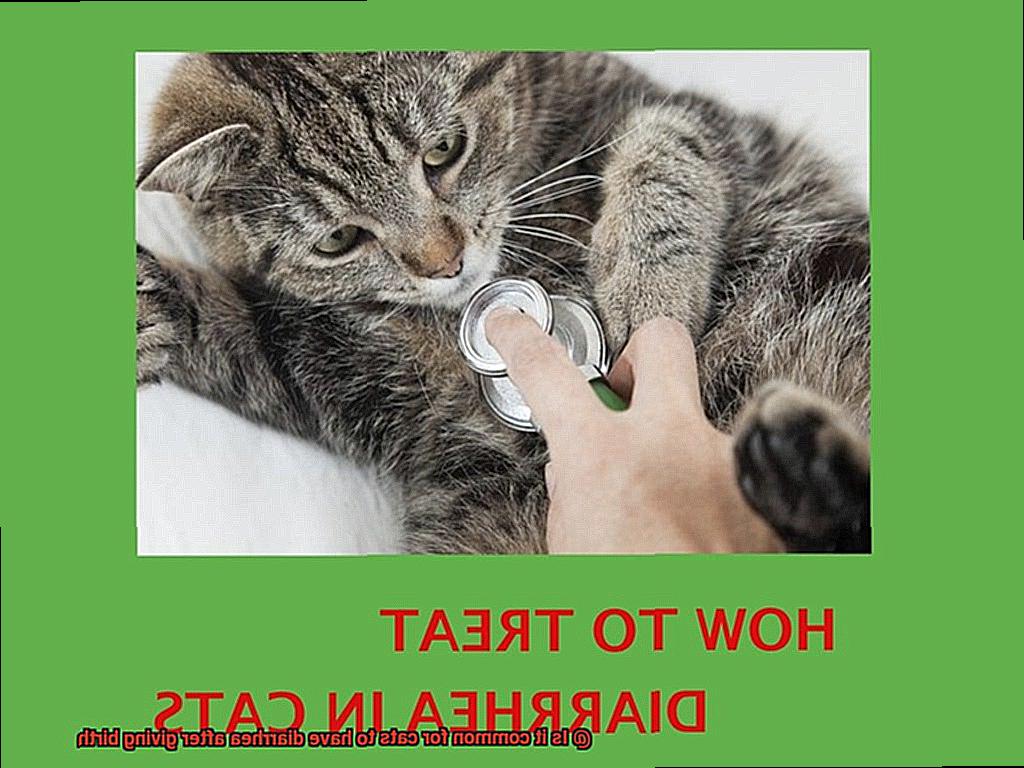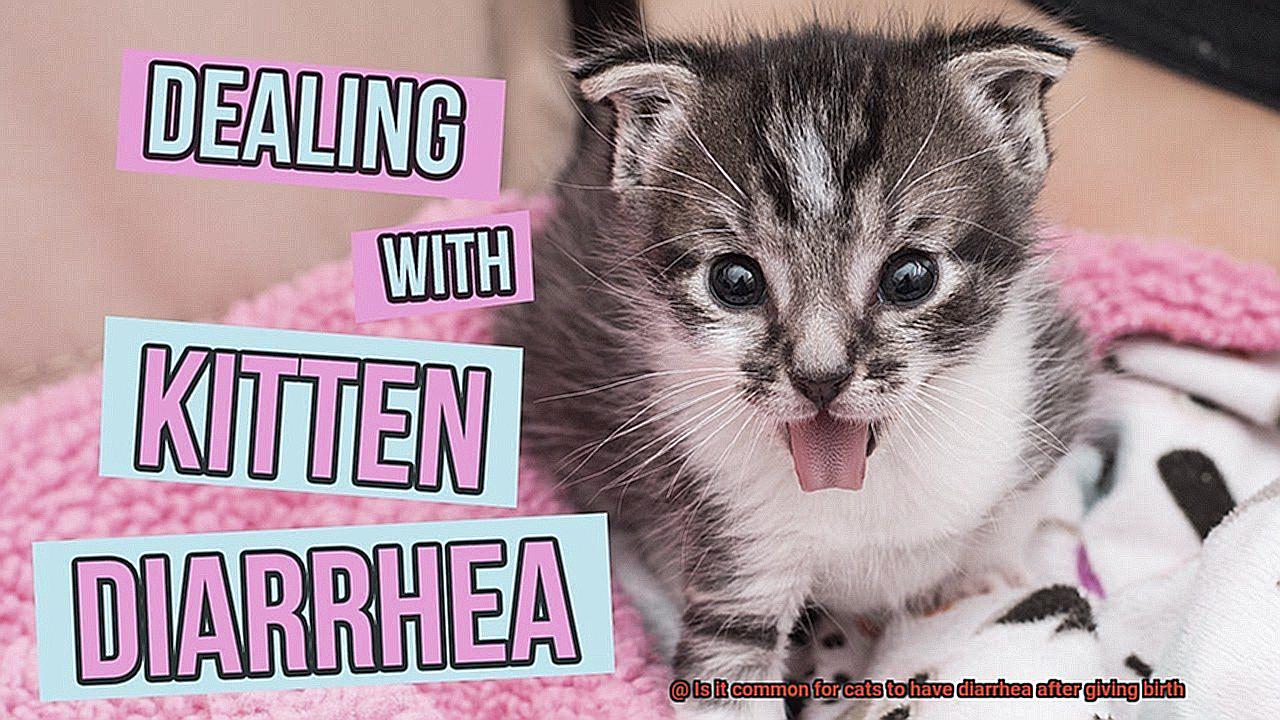As a proud new pet parent, witnessing your feline friend give birth to a litter of cute kittens is an experience like no other. However, it’s essential to ensure that your cat is healthy and comfortable throughout the delivery process and beyond. One common concern among cat owners after their pet has given birth is diarrhea.
Postpartum diarrhea in cats is not uncommon, but what causes it, and when should you seek veterinary attention? Understanding the basics of this condition is crucial in providing the necessary care for your cat during this period.
In this blog post, we’ll delve into the causes, symptoms, and treatments of postpartum diarrhea in cats. We’ll also share some helpful tips to aid your cat’s recovery and ensure their overall health and wellbeing. Whether you’re a first-time cat parent or just curious about feline postpartum diarrhea, you’re in the right place. Our comprehensive guide will help you prepare for and support your furry friend through this exciting yet challenging time.
What Causes Diarrhea in Postpartum Cats?
However, it can be concerning when your postpartum cat experiences bouts of diarrhea. In this article, we will explore the potential causes of diarrhea in postpartum cats and what you can do to help your cat feel better.
Diet
One of the most common causes of diarrhea in postpartum cats is a change in diet. During pregnancy and nursing, cats require a specialized diet that is high in protein and nutrients. After weaning, however, the mother cat may experience a sudden change in her diet, which can lead to digestive issues such as loose stools or diarrhea. It’s essential to gradually transition your cat’s diet after weaning to avoid sudden changes that could cause digestive upset.
Stress
Stress is another potential cause of diarrhea in postpartum cats. Giving birth and caring for kittens can be stressful for cats, and this stress can manifest in physical symptoms such as diarrhea. Additionally, if the mother cat is separated from her kittens for any reason, this can also cause stress and potentially lead to diarrhea. Providing a calm and comfortable environment for your postpartum cat can help alleviate stress.
Diarrhea
In some cases, diarrhea may also be a symptom of an underlying medical issue such as an infection or parasite. It’s crucial for cat owners to monitor their postpartum cats closely and seek veterinary attention if they notice any concerning symptoms such as prolonged or severe diarrhea, dehydration, or lethargy. Your veterinarian may recommend diagnostic tests or prescribe medication to treat the underlying medical condition.
It’s important to note that not all cats will experience diarrhea after giving birth. However, if your cat does develop the condition, it’s crucial to monitor her closely and seek veterinary attention if necessary. Diarrhea can quickly lead to dehydration and other health complications if left untreated.
Symptoms of Diarrhea in Postpartum Cats
One common issue that can arise in postpartum cats is diarrhea. This discomforting condition can manifest in various ways, depending on the severity of the case.
Some telltale signs of diarrhea in postpartum cats include loose or watery stools, frequent bowel movements, and straining while defecating. You may also notice your furry friend exhibiting signs of discomfort, such as licking or biting at her anal area. These symptoms can indicate a mild to moderate case of diarrhea.
However, when it comes to more severe cases, your cat may experience vomiting, dehydration, and lethargy. These symptoms can rapidly become serious if left untreated. Therefore, it’s crucial to monitor your cat’s behavior and appetite closely to ensure she isn’t experiencing any further complications.
If you observe any of these symptoms in your postpartum cat, don’t hesitate to take her to the veterinarian for a check-up. The vet can perform a physical examination and run tests to determine the underlying cause of the diarrhea. Depending on the severity of the case, treatment options may include medications, dietary changes, or fluid therapy to help alleviate symptoms and promote healing.
Diagnosis and Treatment of Diarrhea in Postpartum Cats
But what happens after you visit the vet? In this blog post, we will explore how to diagnose and treat diarrhea in postpartum cats with expert guidance.
Diagnosing diarrhea in cats can be challenging, as there are multiple possible causes, from dietary changes to bacterial or viral infections, intestinal parasites, or even stress. Therefore, a thorough physical exam is necessary to diagnose diarrhea in postpartum cats properly. Additionally, your veterinarian may recommend blood tests, fecal analysis, and imaging studies to identify the underlying cause of diarrhea.
Once your vet has identified the underlying cause of diarrhea in your cat, treatment options may vary. They may include dietary changes tailored to your cat’s specific needs, medications such as antibiotics or antiparasitics, or supportive care such as fluid therapy. However, it’s critical to note that some medications and treatments may not be safe for lactating cats. Therefore, it’s crucial to consult with a veterinarian before administering any medications or treatments.
Moreover, keeping the mother cat’s environment clean and stress-free is also essential in preventing further complications. Stressful environments can lead to diarrhea in cats.
So, make sure your furry friend has a calm and clean environment that encourages optimal health.
How to Prevent Diarrhea in Postpartum Cats

One of the most common health issues that cats experience during this time is diarrhea. Fortunately, there are several steps that you can take to prevent your cat from experiencing this discomforting condition.
Provide a Clean and Comfortable Environment
Just like humans, cats prefer to be in a clean and comfortable environment. Make sure that their litter box is clean and easily accessible, and their bedding is changed regularly. A clean environment will not only prevent diarrhea but also promote overall health and well-being.
Feed a Proper Diet

A balanced diet that contains all the necessary nutrients will help maintain your cat’s digestive health. It’s essential to feed them food that is high in fiber and easy to digest. Avoid feeding your cat table scraps or foods that are not specifically formulated for cats. This could upset their stomach and cause diarrhea.
Ensure Access to Fresh Water
Dehydration can cause constipation, which can lead to diarrhea. Make sure your cat has access to fresh water at all times. You can encourage them to drink more water by placing multiple bowls around the house or adding a little bit of tuna juice to their water.
Reduce Stress Levels
Stress can weaken the immune system and make the cat more susceptible to infections and digestive problems. Therefore, it’s essential to provide a quiet and comfortable space for your cat to rest and recover after delivery. Avoid sudden changes in routine or introducing new animals or people into the household during this time.

Monitor Your Cat’s Health Closely
Keep an eye out for any signs of diarrhea or other health issues, such as vomiting or lethargy. If you notice any symptoms, take your cat to the vet immediately. Early detection of health issues will ensure prompt treatment and prevent further complications.
When to Seek Veterinary Care for Postpartum Cat Diarrhea
While postpartum diarrhea is a typical occurrence among cats after giving birth, it’s essential to know when it’s time to seek veterinary care.
If your cat is experiencing diarrhea after giving birth, keep a close eye on her for any other symptoms. If she starts vomiting, loses her appetite, appears lethargic, dehydrated or develops a fever, it’s time to seek veterinary help immediately. These symptoms could be warning signs of severe health conditions such as an infection or intestinal blockage.

Moreover, if the diarrhea lasts for more than 3-4 days or becomes more severe, it’s crucial to schedule a visit with your vet. Watery or bloody diarrhea could also indicate a bacterial or viral infection that requires immediate medical attention.
Stress can also cause postpartum diarrhea in cats. If you notice that your cat is struggling to adjust to motherhood or experiencing high levels of stress, don’t hesitate to consult with your veterinarian. They can recommend ways to reduce your cat’s stress levels and avoid further complications.
It’s worth noting that if your cat has any pre-existing medical conditions such as kidney disease or diabetes, they may be more susceptible to postpartum diarrhea. In such cases, it’s best to consult with your vet before the kittens are born to develop a plan for monitoring their health and addressing any potential issues.
Diet and Nutrition for Postpartum Cats with Diarrhea
Dealing with postpartum diarrhea in cats can be a daunting experience, but with the right diet and nutrition plan, your feline friend can bounce back and regain their playful self in no time. The first step is to switch to easily digestible foods that can soothe their sensitive digestive system. Boiled chicken, rice, or baby food are excellent options that can provide the necessary nutrients without causing further irritation.
To prevent dehydration – a common side effect of diarrhea – it’s vital to ensure that your cat has access to plenty of fresh water at all times. You could also consider adding an electrolyte solution to their water bowl to restore any lost minerals and nutrients.
Probiotics are another helpful tool in your arsenal against postpartum diarrhea. These supplements contain beneficial bacteria that can restore the balance of gut flora and improve digestion. However, it’s crucial to consult with your veterinarian before giving any supplements, as some may not be appropriate for nursing cats.
Keeping a close eye on your cat’s litter box habits is also essential. By monitoring the frequency and consistency of their bowel movements, you can quickly identify any changes or signs of blood in the stool. In case of any changes, it is critical to contact your veterinarian as soon as possible.
iTA7QvF3AfA” >
Conclusion
In summary, it’s not uncommon for cats to experience diarrhea after giving birth. As a pet owner, it’s important to provide your cat with the proper care and attention needed to prevent and treat this condition effectively.
Factors such as stress, dietary changes, or underlying medical issues can cause postpartum diarrhea in cats. Symptoms may range from mild to severe and require veterinary attention depending on their severity.
To prevent postpartum diarrhea, ensure that your cat has a clean and comfortable environment, access to fresh water and balanced nutrition, reduced stress levels, and close monitoring of their health. If you notice any symptoms of diarrhea or other health issues in your cat after giving birth, seek veterinary care immediately.
Treatment options for postpartum diarrhea include dietary changes tailored to your cat’s specific needs, medications prescribed by your veterinarian like antibiotics or antiparasitics, supportive care such as fluid therapy, and probiotics to improve digestion.
By following these tips and guidelines outlined in this article, you can help your furry friend recover from postpartum diarrhea quickly. Remember always to consult with your veterinarian if you have any concerns about your cat’s health or well-being.







